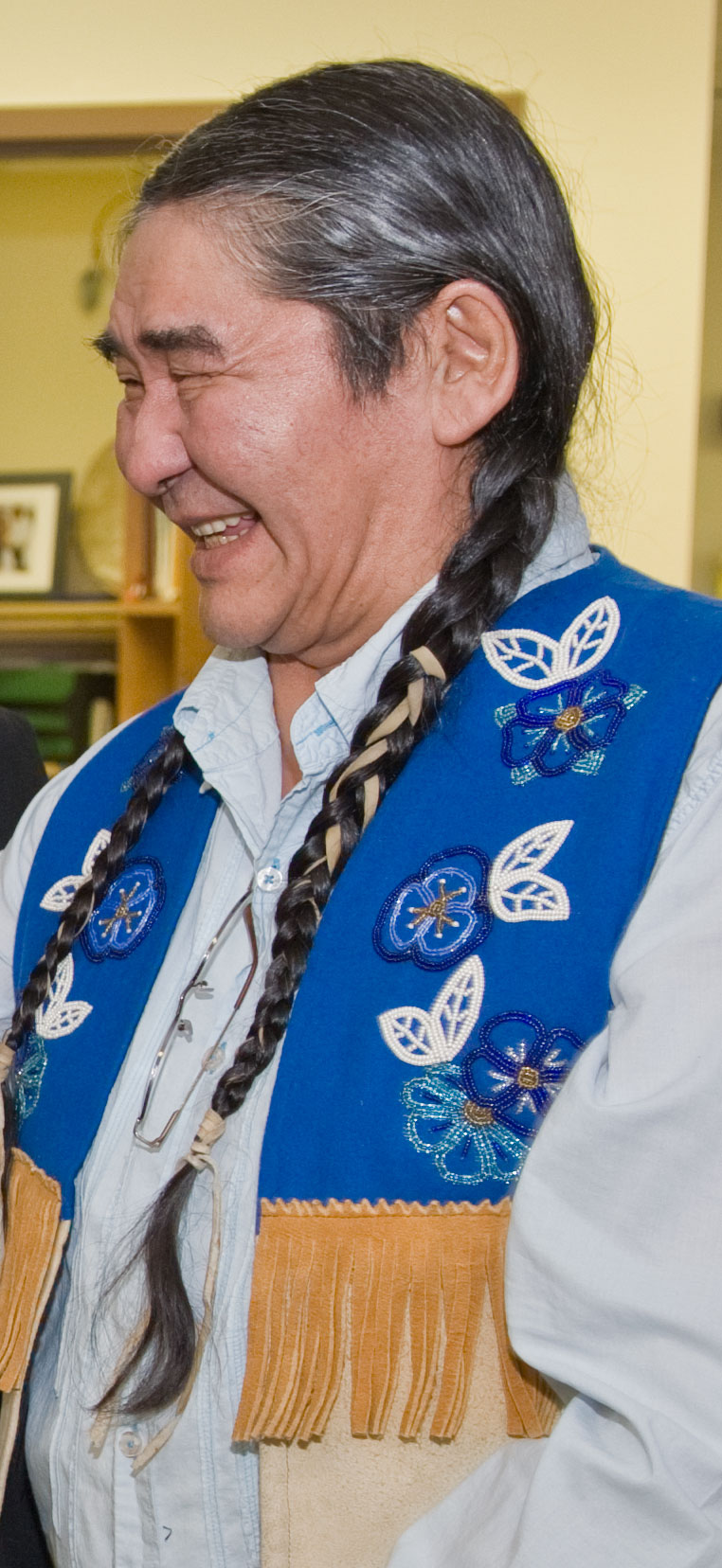Elder shares traditional teaching
Randall Tetlichi never had TV growing up in the north. Look at him now. A while ago he went on a big network show in the U.S.
By Colleen MacPherson "I was on ABC when I was in New York," he said from home in Whitehorse, Yukon. Talking about the north and living off the land is his passion. He has been a guest speaker in Atlanta and Washington, Toronto and Ottawa. He did TV in New York. Up next is Saskatoon.
"I was on ABC when I was in New York," he said from home in Whitehorse, Yukon. Talking about the north and living off the land is his passion. He has been a guest speaker in Atlanta and Washington, Toronto and Ottawa. He did TV in New York. Up next is Saskatoon.Tetlichi, 59, is going to be at the University of Saskatchewan for three weeks, until the middle of November, serving as a northern elder-in-residence. He will talk about traditional teaching. He will give his take on animal and human relations. People on the prairies can experience Arctic life through him.
"I tell stories," Tetlichi said. "People can learn about other parts of Canada instead of just where they are from."
Tetlichi was raised in a family of 16 children in Canada's far north, not far from the Beaufort Sea. They lived in the village of Old Crow with the Vuntut Gwitchin tribe, which means People of the Lakes. Although people have been around Old Crow for 15,000 years, making it maybe the oldest civilization in North America, Tetlichi's great-grandfather John developed the first settlement a hundred years ago. John fished for Arctic char on the Porcupine River. He trapped muskrats and rabbits. He lived on caribou, or as the Gwitchin call them, vadzaih.
So it continued for Randall. He wore moccasins and mitts. He rode a dog team. He ate birds and berries.
"I was taught in a traditional way that goes beyond text," Tetlichi said. "I learned through stories and legends and songs. This knowledge has gone from generation to generation, teaching me to develop strong eyes and strong ears, to survive no matter where I go.
"When I went to boarding school my grandparents said to me, ‘Grandson, we taught you everything we know about the land. Now you get to know the modern world.'"
Tetlichi works in cultural development at Yukon College in Whitehorse, including showing staff and students how to snowshoe. When Mary Jeanne Barrett, an assistant professor at the U of S, visited the Yukon, she heard Tetlichi in action. They talked. A plan was hatched. Come to the University of Saskatchewan, she said to him. Share your knowledge here.
"It's not just what he says, it's his presence," said Barrett, who is in the School of Environment and Sustainability. "Western processes are not enough to deal with the complex problems in front of us. He challenges us to look at things differently, deepens our understanding of the First Nations' way of knowing."
Tetlichi's late father Charlie was an accomplished fiddler whose feel for culture and history landed him in the Order of Canada. Tetlichi's mother Fanny is known for her beadwork, made in a floral design. Randall's teaching is a reflection of his parents and their parents, going back generations.
"I'll tell you a legend," he said, following a theme he learned from his elders. "In the (Arctic) land where people are living it's tough to get game. Without caribou, some people starve. A little boy is crying. ‘Bring me a caribou skin,' he said. ‘Dig a hole in the snow and put the caribou skin over me.' They did. A few nights later that boy is asleep in bed. When he wakes up, he says ‘Go down by the lake. There are lots of caribou there.' There was. The boy knew. He was born a caribou spirit."
For people in Saskatoon and students at the University of Saskatchewan, the stories might sound like they are from a different time, another place. Do they work here?
"When I talk at a class, I have nothing written down, nothing prepared," Tetlichi said. "Ecology, nursing, it doesn't matter. I teach what they haven't been taught before, get them to feel what they've never felt before, hear what they haven't heard before.
"If they remember the name Randall Tetlichi 20 years from now, that's nice. What I expect is they'll teach what they learn here. Develop the mind. Develop imagination. Be creative."
Bob Florence is a Saskatoon freelance writer

